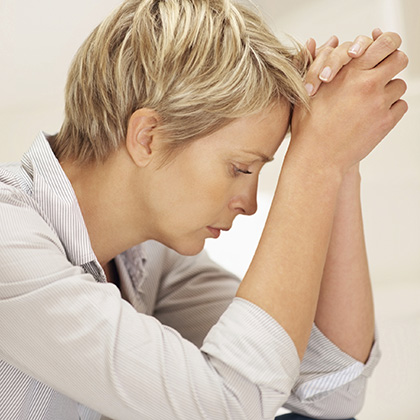
Navigating benign prostatic hyperplasia (BPH) can be challenging. It often brings up feelings of embarrassment, frustration, and anxiety. Unfortunately, outdated notions surrounding masculinity can complicate matters further, making it difficult to speak openly to loved ones and |romantic partners//B1288//target="_blank"| about the condition. In the face of these obstacles, you may be tempted to turn to alcohol as a means to relax and unwind amidst the stress of managing BPH symptoms.
However, the effects of alcohol on prostate health, particularly in the context of an enlarged prostate, remain a subject of ongoing debate among researchers and healthcare professionals. Below, we explore the relationship between alcohol and BPH, shedding light on its potential effects on prostate health.
What is BPH?
The prostate is a walnut-shaped gland located just below the bladder. |As you age//B1283//target="_blank"|, it’s natural for the prostate to enlarge. However, in some cases, it can grow to such an extent that it causes benign prostatic hyperplasia (BPH) or an enlarged prostate, a condition in which the prostate presses against and pinches the urethra and leads to urinary issues.
BPH symptoms include:
A weak or slow urine flow that starts and stops
Dribbling at the end of urination
A sudden urge to pass urine
Passing more urine during the day
Inability to fully empty the bladder
Frequent urination at night (nocturia)
Alcohol and BPH
Excessive alcohol consumption is often associated with poor health outcomes, and when it comes to BPH, heavy drinking can exacerbate symptoms.
First and foremost, alcohol acts as a diuretic, meaning it increases urine production and worsens urinary symptoms like frequency, urgency, and nocturia (frequent urination at night).
Alcohol can also irritate the bladder and prostate making the urinary issues associated with an enlarged prostate more challenging.
Moderation matters
Excessive alcohol consumption may aggravate BPH symptoms, so abstain or try to stick to the recommended alcohol intake of 14 units per week, as this will not only support your prostate health but also your overall wellbeing.
Practical tips for managing alcohol consumption with BPH
Monitor intake
Keep track of how much alcohol you consume and how it affects your urinary symptoms. If you notice that alcohol worsens BPH, consider reducing your intake or avoiding alcohol altogether.
Stay hydrated
Alcohol can dehydrate the body, which may exacerbate urinary symptoms. Make a conscious effort to drink plenty of water alongside alcoholic beverages to stay hydrated.
Think about timing
Be mindful of when you consume alcohol, especially if you experience nocturia. Limiting alcohol intake in the hours leading up to bedtime can help reduce night-time trips to the bathroom and disrupted sleep.
Choose wisely
Consider opting for lower-alcohol beverages or alternatives to alcoholic drinks. Mocktails, non-alcoholic beer, and alcohol-free spirits are excellent choices for those with enlarged prostate symptoms.
If you want more information on reducing your alcohol intake, you can find helpful resources from the NHS here.
Lifestyle measures for supporting BPH
Besides moderating alcohol consumption, making other tweaks to your lifestyle can significantly help BPH symptoms.
|Adopt a Mediterranean diet//B1290//target="_blank"|: Studies suggest men who eat more fruit and vegetables are less likely to develop prostate problems (1).
Include certain nutrients, such as zinc, vitamin D3, beta-sitosterol and quercetin. You can explore our expert nutritional formulas for mature men here.
Go easy on red meat, dairy, and caffeine. These culprits commonly exacerbate BPH symptoms and urinary issues.
Move more. A few hours of movement every week can help support prostate health.
Reduce stress. Unfortunately, |stress can aggravate benign prostatic hyperplasia//B1289//target="_blank"|, so finding coping strategies is essential. Relaxation techniques, engaging in your favourite hobbies, and exercise can help.
Support sleep hygiene. Quality sleep can help manage BPH symptoms. Learn more about improving your sleep here.
Avoid smoking. Quitting smoking is critical for those with BPH.
Reach out for help. Navigating enlarged prostate symptoms can be hard. You don’t need to battle through it alone. Aside from seeking medical guidance, you can |lean on your loved ones//B1284//target="_blank"|, talk to a therapist, or contact our Nutrition Advisors.
You can read more about lifestyle changes to support benign prostatic hyperplasia |here//B1283//target="_blank"|.
Want to find out more?
Living with BPH presents unique challenges, and while some may consider turning to alcohol for relaxation, moderation is key for overall prostate health.
Remember, our team of expert Nutrition Advisors is available to provide free, confidential advice via email, phone, and Live Chat* should you need it. You can also read more about supporting your prostate health on Nutrition Buzz.
A final note from our Nutrition Advisors: If you experience any signs of urinary discomfort, such as nocturia (frequent urination at night), a sensation of incomplete bladder emptying, or a weakened or interrupted urine stream, it’s important to consult your doctor for medical advice. They can help determine if you have benign prostatic hyperplasia or another prostate condition that may need prompt medical intervention.
*Subject to cookie consent
References:
RussoGI, BroggiG, CocciA, CapogrossoP, FalconeM, SokolakisI, GülM, CaltabianoR, Di MauroM., Relationship between Dietary Patterns with Benign Prostatic Hyperplasia and Erectile Dysfunction: A Collaborative Review. Nutrients. 2021;13(11):4148.
You Might Also Like

|Andropause: Understanding the signs of ‘male menopause’//B806|

|Why do I compare myself to others?//B824|

|Depression Signs and Symptoms//B117|
Disclaimer: The information presented by Nature's Best is for informational purposes only. It is based on scientific studies (human, animal, or in vitro), clinical experience, or traditional usage as cited in each article. The results reported may not necessarily occur in all individuals. Self-treatment is not recommended for life-threatening conditions that require medical treatment under a doctor's care. For many of the conditions discussed, treatment with prescription or over the counter medication is also available. Consult your doctor, practitioner, and/or pharmacist for any health problem and before using any supplements or before making any changes in prescribed medications.

Olivia
Olivia Salter has always been an avid health nut. After graduating from the University of Bristol, she began working for a nutritional consultancy where she discovered her passion for all things wellness-related. There, she executed much of the company’s content marketing strategy and found her niche in health writing, publishing articles in Women’s Health, Mind Body Green, Thrive and Psychologies.
|View More//B460|